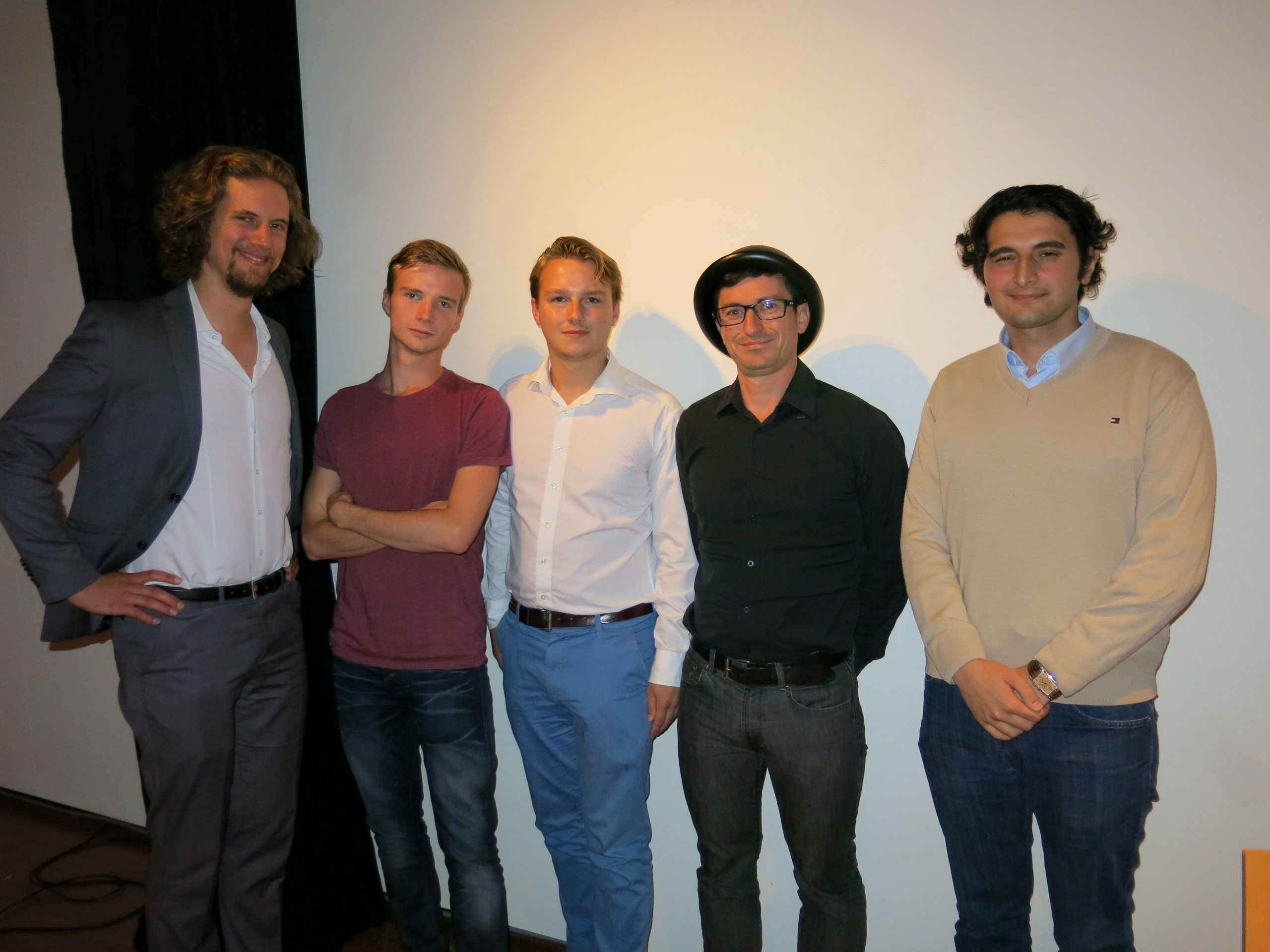During a doctorate award ceremony, some people wear a headscarf, a yarmulke or another symbol of their faith. Why should someone not be awarded a doctoral degree in a pirate suit, TU PhD student Michael Afanasyev wants to know.
Michael Afanasyev (second right) filed a complaint at the Netherlands Institute for Human Rights.
Former Delta columnist and CEG graduate Michael Afanasyev calls himself a priest in the Church of the Flying Spaghetti Monster. He wants to receive his doctoral degree in his church’s clothing. “I asked the Doctorate Board if I could receive my doctoral degree in the traditional ceremonial clothing of my office of priest (pirate costume, of course),” he previously mailed to Delta. “The Board rejected my request and I filed a complaint at the Netherlands Institute for Human Rights.”
Colander
According to the followers of the Church of the Flying Spaghetti Monster, the world was created by this flying god with meatball eyes. Members of this parody empire take their joke deadly seriously. Instead of a headscarf or yarmulke, they like to wear a colander on their heads. They also want to be photographed that way for their passport. They conduct lawsuits if this is not allowed.
‘My intention is to advocate equal treatment and freedom of faith at TU Delft, not to promote pastafarianism’
Pirates also play a role in the belief of the ‘pastafari’. They claim that earthquakes, hurricanes and global warming are related to the decline in the number of pirates since the year 1800. That is why on occasion they dress as pirates. Afanasyev also wanted to do this during his PhD ceremony.
Pirate costume
The PhD ceremony is an academic ceremony with a “subdued character”, says a TU spokesperson. “This includes appropriate, formal clothing. A pirate costume will not suit TU Delft on this occasion.” The university has no problems with “an item of personal privacy”, such as a yarmulke or headscarf. “The university might allow a modest item of headgear that expresses the conviction of the person concerned and does justice to the modest character of the occasion.” He does not say whether a colander is subdued enough.
Pastafari
Pastafarianism was devised in 2005 by Bobby Henderson, when schools in the American state of Kansas not only had to teach the evolution theory, but also the theory of ‘intelligent design’: the idea that a divine design is visible in nature. In that case, Henderson argued, you can teach many more religious theories such as his own theory that a flying spaghetti monster created the earth. This merry religion criticism soon spread like a real faith, complete with holidays, rituals and symbols.
By the way, Afanasyev says that the case at the College for Human Rights is a more general principle for him: “My intention is to advocate equal treatment and freedom of faith at TU Delft, not to promote pastafarianism.” Together with representatives of other philosophies of life, he previously wore a colander on his head at a Delta debate about silent spaces at the TU.
The session at the Netherlands Institute for Human Rights will take place on 21 November.



Comments are closed.